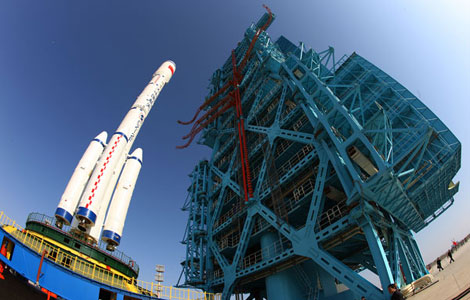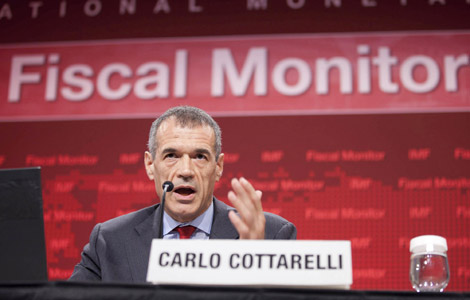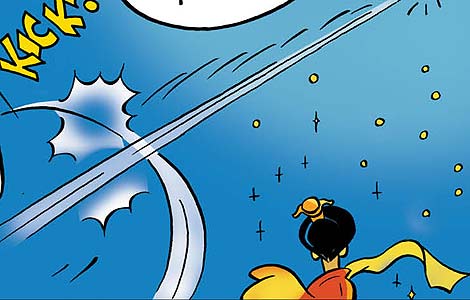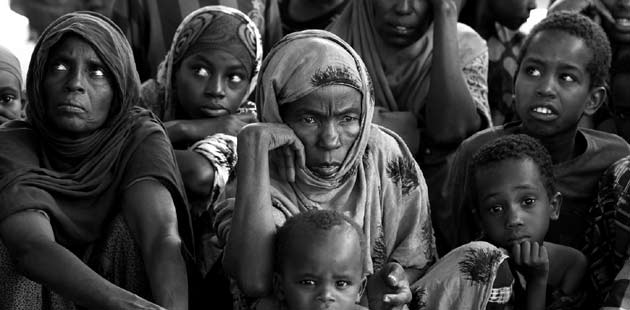Danger never far in Kabul
Updated: 2011-09-21 07:34
By Wang Huazhong (China Daily)
|
|||||||||||
While I was preparing to set off on my trip into this country, signs foretelling that it would not be easy kept appearing.
Two days before a photographer and I were to depart, the travel agency that we arranged the trip with announced that the only flight going from China to Afghanistan, which left once a week from Urumqi, had been canceled. The abrupt notice forced us to find another way into the country. We finally found a suitable flight leaving from Delhi, India.
Equally nerve-racking, I was only able to secure the visa I needed to enter Afghanistan days in advance of the trip's start. And to do that I had to take the unusual step of going to the Afghan Embassy in Beijing and filling out an application while standing in a 10-square-meter reception room and talking to officials through an intercom system.
Later, when we were trying to board our flight at the Delhi airport, an attendant standing by the ladder leading up to the plane opened, one by one, the 10 gift boxes we were carrying. Each of them contained a China Daily key ring, which we had planned to hand out to win over those we hoped to interview in Afghanistan.
Even though passengers standing in a long line had to wait for the attendant to finish her search, she did not allow me to board until she had finished unfolding every one of the plastic packages that held the key rings, feeling them until she was reassured about their contents.
Hours later we landed on an uneven runway in Kabul. It was 38 C outside. "Whiz", a Westerner who declined to tell me his full name, unzipped his suitcase, pulled a bulletproof jacket out and dexterously put it on.
Even more unexpectedly, we were picked up by a friend who was driving a bullet proof Toyota Cruiser with heavy doors. A policeman with a machine gun was seated in the front.
Looking out of the vehicle's windows, I saw military helicopters hovering in the sky and army cars roving about but, incongruously, many people who appeared to be at ease. Some of them were riding Chinese-made bicycles while others were squeezing into buses printed with words from several languages.
Behind the tranquility, though, lurked peril. Signs of the omnipresent danger could be read in buildings damaged by explosions, the remains of cars used in suicide bombings and the giant concrete barricades that had been erected around the walls of foreign embassies.
We even managed to take pictures of children carrying rifles in the street.
My translator Mateen Yousofzai and our police escort warned us about snapping too many photographs.
"Don't point your lenses at women," they shouted. "Stow your cameras right now."
Our car at times was stuck in traffic jams, leading us to pull it to the side of the dusty road with no traffic lights that we were traveling on. During such stops we always saw children carrying tin cans, who, without for your permission, would clean your car windows or simply beg for money.
The country's current government, which was instated by a popular vote, has freed women to unveil their faces and has made it possible for more businessmen to embrace Western fashion and wear well-ironed suits. Still, blue burqas, which cover the entire female body, remain common sights.
My original plan upon landing was to visit a market where many Chinese have come to establish businesses selling construction materials. But the police objected to it, saying, "explosions most often occur in crowded places".
Hot Topics
Libya conflict, Gaddafi, Oil spill, Palace Museum scandal, Inflation, Japan's new PM, Trapped miners, Mooncake tax, Weekly photos, Hurricane Irene
Editor's Picks

|

|

|

|

|

|







